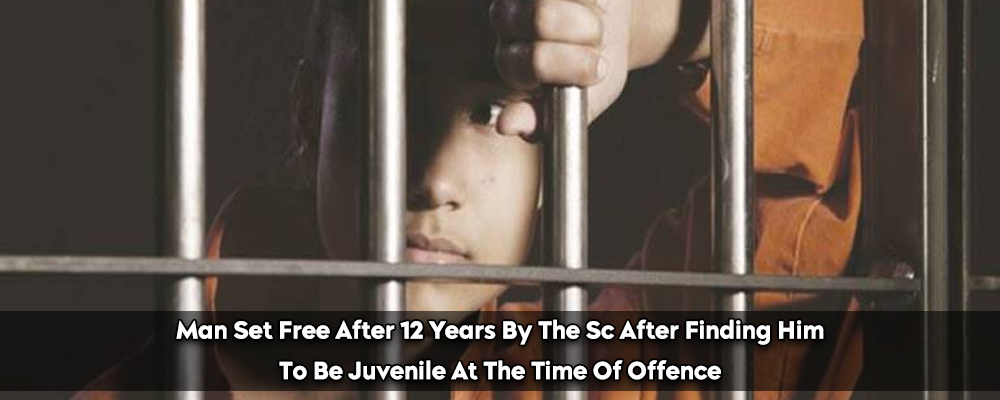While deciding the writ petition of Makkella Nagaiah v State of Andhra Pradesh (429 of 2022), the Supreme Court, after noticing the fact that he was under aged at the time of commission of the crime, ordered the release of a man who has undergone an imprisonment of around 12 years. It has to be understood here that the maximum sentence under the Juvenile Justice Act, 2000 is 3 years.
The writ petition was filed under Article 32 of the Constitution, where he sought verification over his claim of juvenility. The matter has been discussed here under-
Need A Legal Advice
The internet is not a lawyer and neither are you. Talk to a real lawyer about your legal issue

Facts
- The accused was charged as an accused along with others.
- In the year 2009, the petitioner got convicted under Section 302 read with Section 34 of the Indian Penal Code, 1860, by the Additional Sessions Judge with a sentence of life imprisonment.
- Later, the sentence was affirmed by the High Court as well as the Supreme Court.
- After a period of two months had passed, after the order was passed in july 2022 by the Supreme Court, the petitioner approached the Supreme Court, in order to validate his claim of juvenility, hence seeking a direction to state to verify the same.
Observation by the Court
- Under Section read with Section 15(1)(g) of the Juvenile Justice Act, 2000, the court affirmed that a wrongdoer could be punished for a maximum period of three years.
- The Court referred to the May 2023 report of Additional Sessions Judge, who was appointed to enquire about the juvenile claim of the pleader. As per the enquiry, the date of birth of the claimant at the time was 2nd May, 1989.
- The Court observed that the State filed an affidavit, affirming that the petitioner studied at a school in Andhra Pradesh from 1st standard to 3rd standard. The Court held that on the basis of the school documents, it shall be appropriate to direct the II Additional Sessions Judge of the Fast Track Court, Andhra Pradesh to conduct an enquiry regarding the same.
- The Court said that as per the findings, the accused was 16 years and 7 months old on the day the crime was committed. Therefore, the petitioner at the time was a juvenile.
- The Bench of Justice B R Gavai, Justice P S Narasimha and Justice Sanjay Kumar, also noted that the plea of juvenility has been raised in the present petition only, which led to the petitioner being convicted and sentenced for life imprisonment by the trial court, High Court and the Supreme Court as well.
- The Court hence decided that based on the report submitted by the II Additional Sessions Judge Khammam, the petitioner could no longer be imprisoned if he is not needed to be detained for any other case.
- It was also held by the court that the question of juvenility could be raised at any stage of the legal proceeding, as has been prescribed under Section 7A(1) of the Juvenile Justice Act, 2000.
Following through the legal procedures could be very hectic both physically as well as mentally. In order to ensure that the legal process is being completed without any hindrance, it is advised that you seek legal assistance from an experienced advocate who specialises in the respective field.
Lead India offers you a wide pool of experienced advocates who have been successfully assisting the clients with various legal procedures for both civil as well as criminal cases. Hence, if you wish to seek free legal advice online or seek free legal advice online, you may contact us.





 Talk to a Lawyer
Talk to a Lawyer